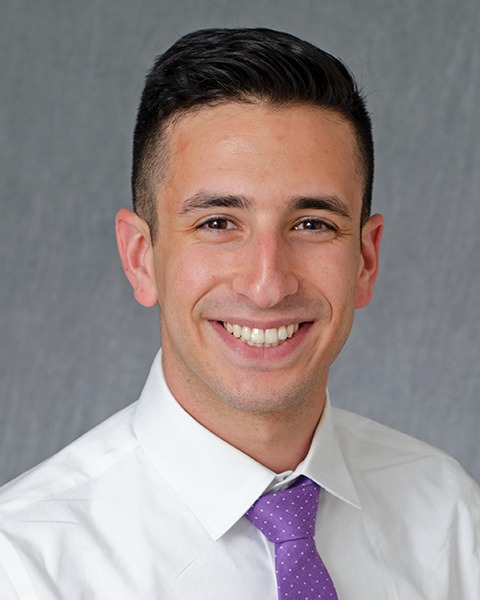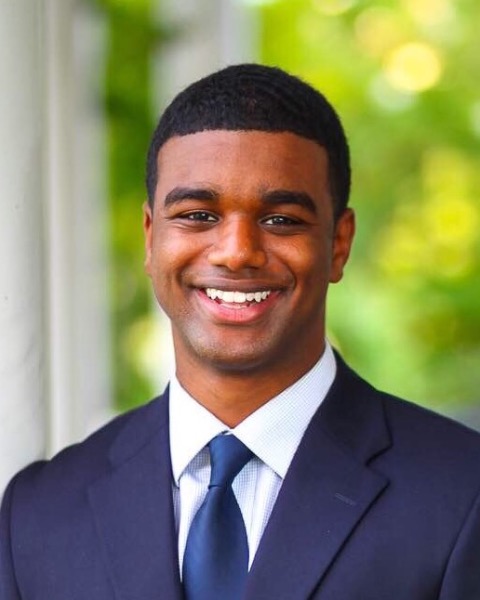Size Doesn't Matter: Determining Association Between BMI and Pulse Check Length in Cardiac Arrest
-

Ayal Pierce, MD
Resident Physician
George Washington University Hospital
Washington, District of ColumbiaDisclosure information not submitted.
-
BP
Brad Pradarelli, n/a
MS4
George Washington University School of Medicine and Health Sciences, United StatesDisclosure information not submitted.
-
JB
-

Margarita Popova, MD
Resident Physician
George Washington University Hospital, United StatesDisclosure information not submitted.
-
IB
Ivy Benjenk, RN, MPH, PhD
Research Coordinator
George Washington University Hospital, United StatesDisclosure information not submitted.
-
NS
Natalie Sullivan, MD
Fellow in Disaster/Operational Medicine
George Washington University Hospital, United StatesDisclosure information not submitted.
-
PM
Patrick McCarville, MD
Resident Physician
George Washington University Hospital, United StatesDisclosure information not submitted.
-
CP
Christopher Payette, MD
Resident Physician
George Washington University Hospital, United StatesDisclosure information not submitted.
-
JO
John Organick-Lee, MD
Resident Physician
George Washington University Hospital, United StatesDisclosure information not submitted.
-
JF
Jordan Feltes, MD
George Washington Unversity
Washington, District of ColumbiaDisclosure information not submitted.
-

Yasir Hussein
George Washigton University
Washington, District of ColumbiaDisclosure information not submitted.
-
DY
David Yamane, BS, MD
Assistant Professor of Emergency Medicine, Anesthesiology, and Critical Care Medicine
George Washington University Hospital, United StatesDisclosure information not submitted.
-
AR
Anahita Rahimi-Saber, MD
Resident Physician
George Washington University Hospital, United StatesDisclosure information not submitted.
First Author(s)
Co-Author(s)
Title: Size Doesn’t Matter: Determining Association Between BMI and Pulse Check Length in Cardiac Arrest
Introduction: Cardiac arrest is one of the leading causes of mortality in America annually. The American Heart Association recommends limiting pulse check times to less than 10 seconds. Numerous environmental and situational components of CPR have shown to affect pulse check time. However, patient factors that affect pulse check length remain unstudied. As the average body mass index (BMI) increases each year in the United States, we aimed to evaluate if a larger body habitus would increase pulse check length.
Methods: We performed a prospective, observational study through video review at our urban academic hospital. Three resuscitation bays were continuously recorded with audiovisual cameras to capture out of hospital cardiac arrests. Videos were reviewed for length of pulse checks. Documented weights and heights were used to calculate BMI. We used a t-test, Pearson chi squared test, and logistic regression to investigate any association between the obese and normal weight cohorts as well as between a pulse check < 10 sec cohort and greater than 10 sec cohort. For consistency, only the initial pulse check was analyzed.
Results: A total of 97 videos were collected between 2017 and 2019, and 82 of those patients had documented weights and heights to be able to calculate BMI. Mean age was 59.5, 55 were male and 27 female. Average pulse check length was 11.0 seconds. When comparing mean pulse check time for BMI above or below 30, there was no significant difference, 10.7 sec and 11.2 sec (p = 0.65). Pearson chi squared test between those with pulse checks less than 10 seconds and those greater than seconds also did not reveal any association with BMI. Logistic regression with pulse check length and age, BMI, or sex further did not reveal any association.
Conclusions: Despite the perception that palpating a pulse in more obese patients may take longer, our study showed no significant association between pulse check times and obesity. More research is necessary to determine what elements of CPR can be adjusted to decrease the time spent checking pulses and increase survivability.
